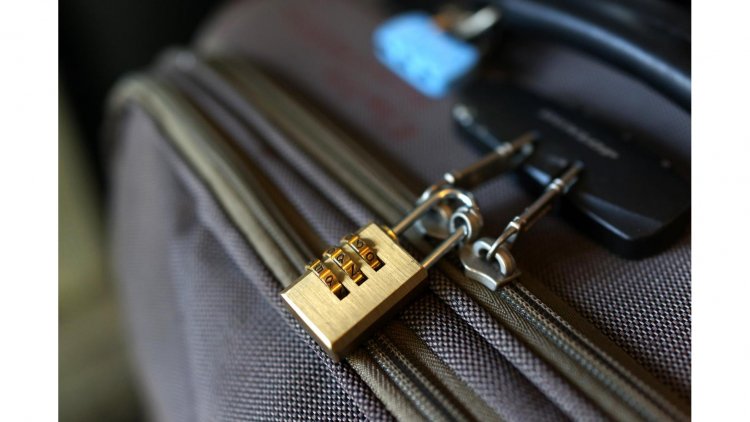Fort Knox on the Go: 9 Ingenious Ways to Keep Your Valuables Safe While Traveling
Traveling can be an exhilarating experience, but it also comes with its share of risks, especially when it comes to keeping your valuables secure. From passports and credit cards to cash and electronics, safeguarding your possessions while exploring new destinations is crucial. In this comprehensive guide, we’ll explore nine innovative strategies to ensure your valuables remain safe and sound throughout your journey.

1. Invest in Anti-Theft Gear
In today’s market, there's an array of anti-theft travel gear designed to protect your valuables. Consider investing in a range of products such as anti-theft backpacks, money belts, and neck pouches. These items are designed with hidden compartments and reinforced materials to thwart pickpockets and thieves.
Anti-Theft Backpacks
Anti-theft backpacks come with features like lockable zippers, cut-resistant straps, and RFID-blocking compartments. The lockable zippers help prevent unauthorized access, while the cut-resistant straps make it harder for thieves to snip your bag from your shoulder. RFID-blocking compartments protect against electronic pickpocketing, which involves thieves scanning your credit cards or passports to steal sensitive information.
Money Belts and Neck Pouches
Money belts and neck pouches are excellent for carrying cash, credit cards, and other small valuables. They are designed to be worn under your clothing, making it difficult for pickpockets to reach them. Choose a money belt that is comfortable and adjustable to fit snugly against your body, reducing the risk of it being detected by thieves.
2. Use Hotel Safes Wisely
Hotel safes are a common choice for storing valuables, but they must be used correctly to be effective. Always ensure that you use the safe provided by your hotel and follow these best practices:
Check Safe Functionality
Before leaving any valuables in the hotel safe, test it to ensure it’s functioning properly. If the safe doesn’t seem secure, or if you have any doubts about its reliability, consider using additional security measures.
Keep a Record
Make a list of the items you store in the safe, including serial numbers if possible. This list can be valuable in case of theft or loss, as it helps to report the incident to local authorities or your insurance company.
Use Room Safes Sparingly
If you’re staying at a hotel with a room safe, remember that these safes are often less secure than those at the front desk. If you’re staying in a luxury hotel, room safes are generally more secure, but it’s still wise to exercise caution.
3. Secure Your Documents Digitally
In the digital age, having electronic copies of your important documents can be a lifesaver if you lose your originals. Here’s how you can manage your documents securely:
Cloud Storage
Upload scanned copies of your passport, visa, travel insurance, and other important documents to a secure cloud storage service. Ensure that your cloud account is protected by strong, unique passwords and two-factor authentication to prevent unauthorized access.
Encrypted Files
For added security, use encryption software to protect sensitive documents before uploading them to the cloud. This adds an extra layer of protection, ensuring that even if someone gains access to your cloud account, they cannot easily read your documents.
Access Your Documents Offline
In addition to digital copies, consider carrying a USB drive with encrypted versions of your important documents. This can be useful in areas with limited internet access or in cases where you prefer not to rely on cloud services.
4. Keep Your Valuables in Separate Locations
Distributing your valuables across multiple locations can minimize the risk of losing everything if your bag is lost or stolen. Here are a few tips on how to do this effectively:
Use Multiple Bags
Avoid keeping all your valuables in one bag. Distribute them between your main luggage, a day pack, and your money belt or neck pouch. For example, keep a small amount of cash and your credit cards in your money belt, while storing a backup credit card and a spare key in your main luggage.
Safe Locations in Accommodations
When staying in accommodations, use multiple safe locations. If possible, hide some valuables in less obvious places in your room, such as in a sealed envelope under a drawer or inside a shoe. This reduces the risk of losing everything if the primary location is compromised.
5. Be Aware of Common Scams
Travelers are often targets for various scams that can lead to theft. Being aware of common scams and understanding how to avoid them is crucial for keeping your valuables safe.
Fake Police Officers
Scammers sometimes pose as police officers to trick travelers into handing over their valuables. If approached, ask to see official identification and be cautious of giving out your personal items. It’s wise to only interact with genuine authorities and always verify their credentials.
Distraction Techniques
Pickpockets often use distraction techniques to divert your attention while they steal your belongings. Be vigilant in crowded places and avoid engaging with strangers who seem overly eager to start a conversation or create a scene.
Lost Items Scams
Some scammers may claim to have found your lost items and demand a reward or a “finder’s fee.” Always verify the legitimacy of such claims and be cautious when dealing with strangers who approach you with such offers.
6. Use a Portable Safe
A portable safe is a compact, secure option for protecting your valuables when you’re on the go. These safes are designed to be lightweight and easy to carry, offering an extra layer of security.
Features to Look For
When choosing a portable safe, look for features such as combination locks, durable materials, and the ability to attach it to a fixed object. The combination lock ensures that only you can access the contents, while durable materials protect against tampering.
Usage Tips
Use the portable safe to store cash, electronics, and other valuables while you’re out and about. Secure the safe to a fixed object, such as a hotel room fixture or a car seat, to prevent it from being easily stolen.
7. Be Mindful of Local Safety Practices
Different destinations have varying safety practices and standards. Understanding and adapting to these local practices can help you keep your valuables secure.
Research Local Scams and Safety Tips
Before traveling, research common scams and safety tips for your destination. Local travel forums, government travel advisories, and travel blogs can provide valuable insights into what to watch out for and how to stay safe.
Follow Local Customs
Respect and adhere to local customs and practices related to security. In some countries, carrying large amounts of cash or displaying expensive items may attract unwanted attention. Adjust your behavior and security practices accordingly to blend in and reduce risk.
8. Use Secure ATMs and Payment Methods
ATM and payment card fraud are significant concerns for travelers. Protect yourself by using secure ATMs and payment methods.
Secure ATM Usage
Always use ATMs located in well-lit, busy areas, preferably within bank branches or secure locations. Avoid using ATMs that look tampered with or have unusual attachments. Cover your PIN while entering it, and be cautious of shoulder surfers or anyone acting suspiciously nearby.
Credit Card Safety
Use credit cards with chip technology rather than magnetic stripe cards, as they offer enhanced security. Notify your bank of your travel plans to avoid having your card flagged for suspicious activity. Keep a record of your card numbers and contact information for your bank in case of loss or theft.
9. Maintain a Low Profile
Minimizing the visibility of your valuables can significantly reduce the likelihood of theft. Here’s how to maintain a low profile:
Avoid Flashy Displays
Refrain from displaying expensive items such as jewelry or high-end electronics in public. Keep such items concealed and only use them when necessary. Opt for a more understated appearance to avoid drawing unnecessary attention.
Be Discreet
When handling cash or valuables, do so discreetly. Avoid counting large amounts of money in public or making transactions in high-traffic areas. The less attention you draw, the lower the risk of becoming a target for thieves.
By following these nine innovative strategies, you can significantly reduce the risk of losing your valuables while traveling. Keeping your belongings secure requires a combination of preparation, vigilance, and the right tools. Stay alert, plan ahead, and enjoy your travels with peace of mind.
Protecting Your Valuables: A Traveler’s Ultimate Guide
In a world where travel brings both exciting opportunities and potential risks, safeguarding your valuables is more critical than ever. By employing the nine strategies outlined, you can navigate your travels with confidence, knowing that your possessions are secure. Whether you’re exploring a bustling city or relaxing on a tranquil beach, these tips will help you keep your belongings safe and your peace of mind intact.
Balancing the thrill of discovery with the necessity of security can seem challenging, but with careful planning and the right tools, you can mitigate most risks. From investing in anti-theft gear to being mindful of local safety practices, each strategy contributes to a holistic approach to travel security. As you embark on your next adventure, keep these tips in mind to ensure a smooth and worry-free experience.
Disclaimer
The travel information and recommendations on this blog are intended for general guidance and inspiration. Conditions and regulations can change quickly, so please verify all details with appropriate sources before making travel plans. We are not liable for any errors, omissions, or outcomes resulting from your use of this information. Travel involves inherent risks, and it's essential to prioritize your safety and well-being. Always travel with adequate insurance and take necessary precautions.
What's Your Reaction?





















